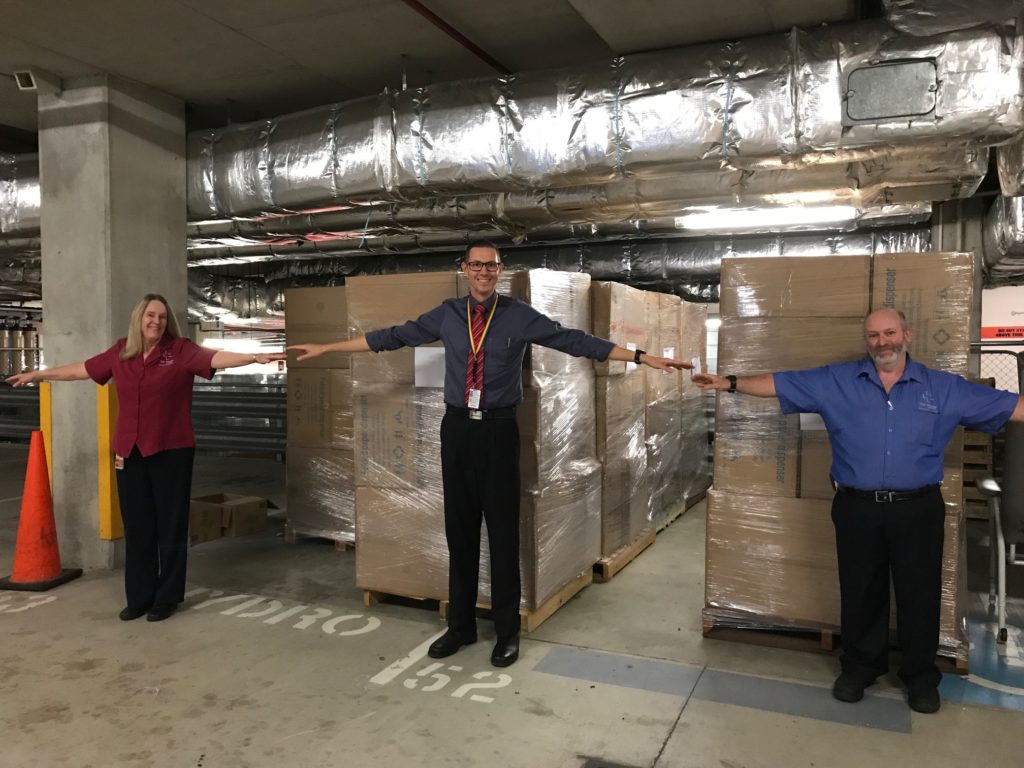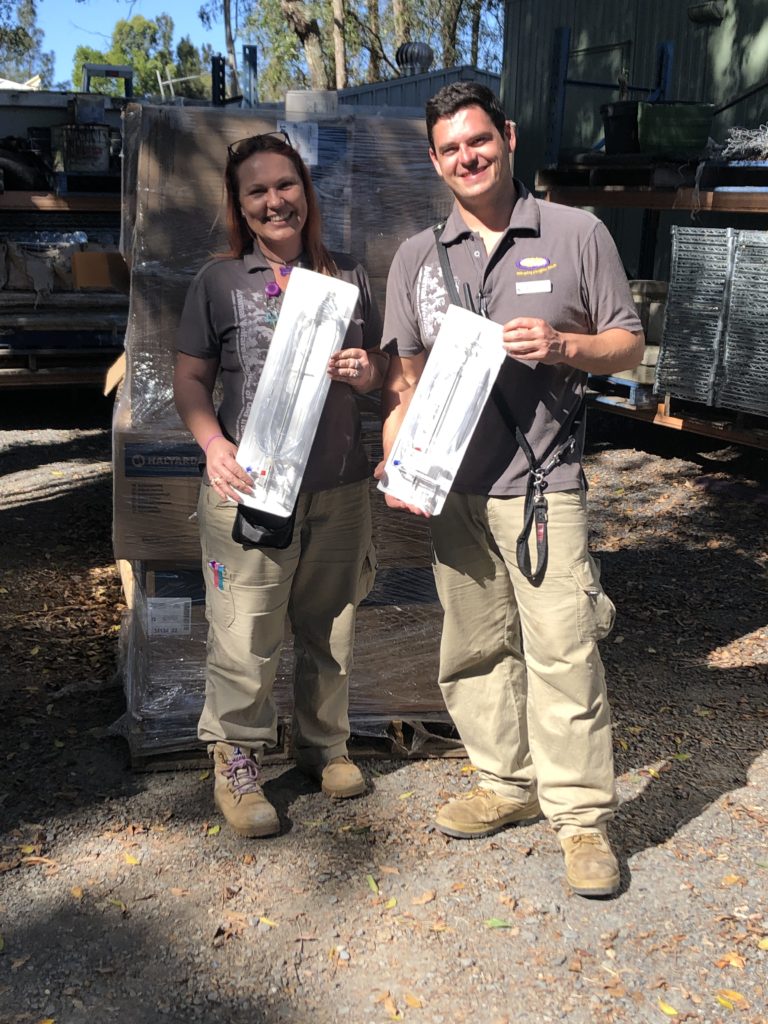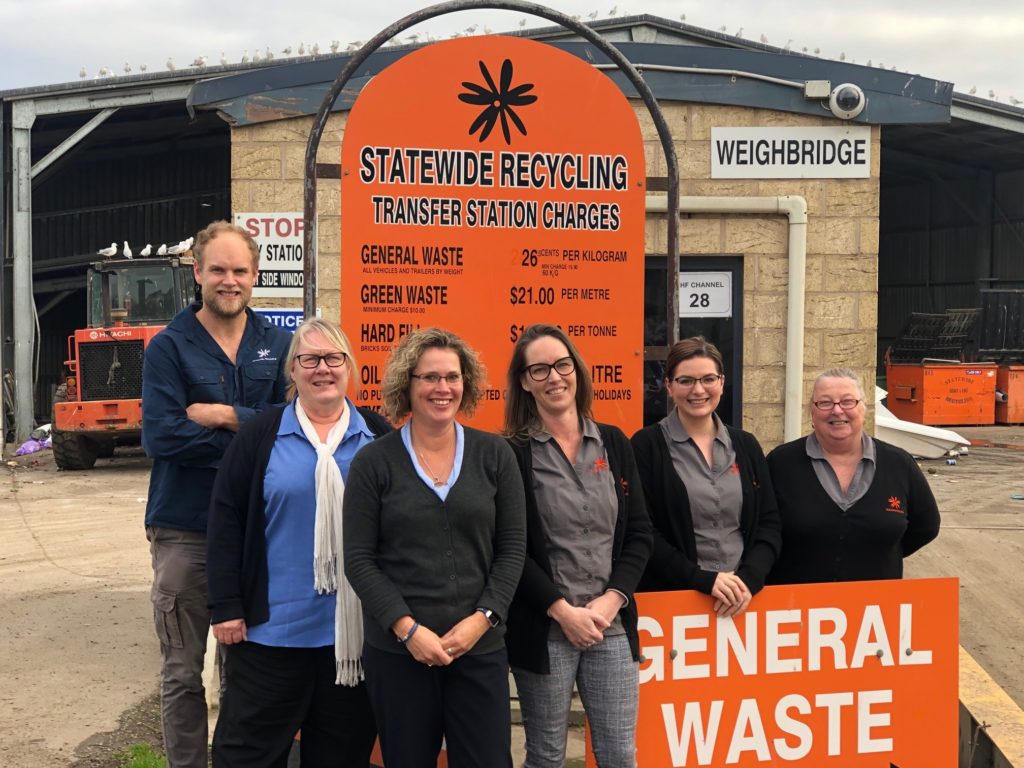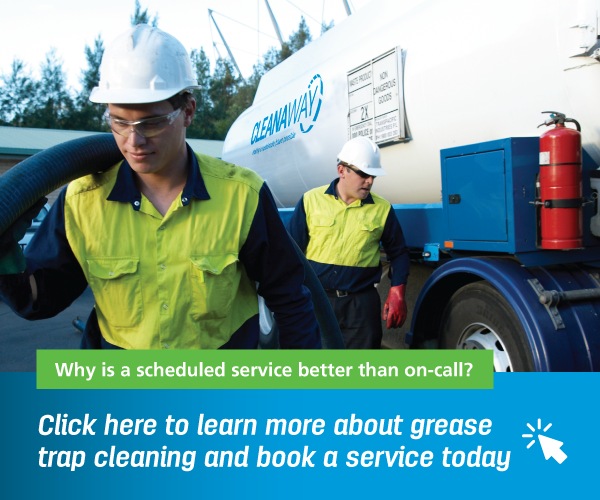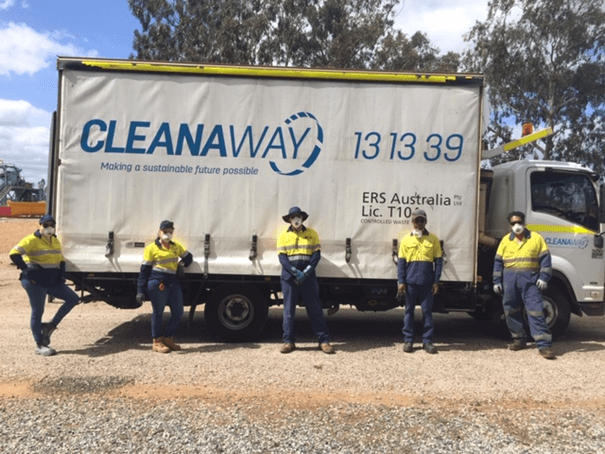In NSW, we helped Pallet Collars Australia divert up to 180 tonnes of sawdust and woodchip waste from landfill each year while creating a new revenue stream.
In NSW, we helped Pallet Collars Australia divert up to 180 tonnes of sawdust and woodchip waste from landfill each year while creating a new revenue stream.
Since 2014, Cleanaway has helped over 2,000 customers in NSW to recycle 19,000 tonnes of material that would otherwise have gone to landfill, funded by the NSW Environmental Protection Agency (EPA) Bin Trim program.
We all know that recycling is good for the environment but what’s the incentive for businesses to recycle more?
Why recycling more makes good business sense
A general waste bin is charged by weight, so the heavier the bin, the more expensive it is. Diverting heavy, wet material like food scraps to an organics service, and common recyclables like glass and cardboard, can save businesses a large sum on the general waste bill.
It’s not good enough to simply tell businesses to recycle more, if it’s not clear what the right recycling solutions are in the first place. Understanding your waste profile is the first step and this is where a waste assessment can help.
Waste assessments, sometimes known as a waste health check or waste audit, is a deep dive into your bin to help you understand what you’re wasting, uncover potentially wasteful and expensive disposal practices and find opportunities for recycling. Here are just a few of our customers that have benefited from a waste assessment:
- Officeworks’ Ringwood increased their recycling rates so much, they no longer need a commercial general waste service. We are working with Officeworks to achieve their 90% recycling targets across the business with the help of our waste assessments and in-store education programs.
- In NSW, our waste assessment helped Pallet Collars Australia divert up to 180 tonnes of sawdust and woodchip waste from landfill each year while creating a new revenue stream. The waste was turned into wooden briquettes that were then sold as combustibles.
- We helped Corrimal RSL increase their recycling rates to 80% with a new organics service, combined with signage, stickers and staff education on proper bin usage.
Bin Trim waste assessment program for NSW businesses
Bin Trim is a NSW government initiative that aims to help eligible businesses reduce waste sent to landfill and recycle more through waste assessments and rebates to cover up to 50% of the capital cost of recycling equipment.
Now in its fourth round, Cleanaway is the only major waste service provider in NSW to be a recipient of grant funds in all rounds of Bin Trim. Our team of experts have worked with customers across industries including retail, accommodation and food services, manufacturing, and healthcare.
Every customer that participates in Bin Trim will receive a free assessment and action plan that identifies waste streams that can be diverted and recommendations on how to get there. This includes recycling education, behaviour change programs and strategies for waste avoidance.
Eligible Cleanaway customers in NSW that would like to participate in Bin Trim can contact bintrim@cleanaway.com.au
Are you eligible for Bin Trim?
- Small to medium-sized businesses in New South Wales only (up to 400 full time employees per site)
- Existing Cleanaway customers only
- Not government owned
- Businesses with a general waste service
- Businesses with a commingled bin but have the potential to divert organics, cardboard or other waste streams from general waste
Meet Cleanaway’s Bin Trim team

Theresa Troup is a Cleanaway Senior Education Officer and our Round 4 Bin Trim project manager. She has over 10 years of experience in the waste industry, four successful Bin Trim grant applications and six years of Bin Trim experience. Theresa provides guidance to Cleanaway’s Bin Trim assessors whilst working closely with Cleanaway’s branches across NSW to encourage customers to participate in the program.

Evelyn Hwang worked with 243 businesses in Round 3 of Bin Trim. She has a wealth of experience working with facility managers to improve resource recovery outcomes in mixed tenancy buildings. Her projects include recycling trials, face-to-face recycling education and training, and developing tailored online learning tools for customers in Sydney CBD.

Mark Lielkajis specialises in the health and safety aspect of waste assessment projects and recycling contamination management strategies. Mark worked with 121 businesses in Bin Trim Round 3 and is all set for Round 4.

Priya Murthy has led assessments for Cleanaway customers in various industries but most prominently in healthcare and education. Priya was an assessor in Bin Trim Round 3 where she assisted 156 businesses with diversion strategies.

Charlotte Landini joined Cleanaway at the start of this year to combine her love of teaching with her qualifications in environmental sustainability. When she is not in schools teaching children about recycling, she is providing resource recovery training to our retail customers. Her communication and education skills will be put to good use as a Round 4 Bin Trim assessor.

Andrew Snedden worked with around 40 businesses in Bin Trim Round 3 and is the coordinator of Cleanaway’s kNOw Waste Education Program. He has a passion for food organics recycling and looks forward to helping businesses divert more food waste from landfill via recycling, composting and waste avoidance initiatives.

Colleen is one of our newest Bin Trim assessors. She has experience in Environmental Education and in conducting waste assessments for large facility managed sites. Colleen’s background in healthcare is a great asset to the team and the many customers that we service in this industry.
Eligible NSW Cleanaway customers interested in Bin Trim can contact the team at bintrim@cleanaway.com.au.
Not in NSW? Contact us to learn more about our no obligation waste assessments.
This is a Waste Less Recycle More initiative funded from the waste levy.
To find out more about the Bin Trim program visit epa.nsw.gov.au/bintrim
